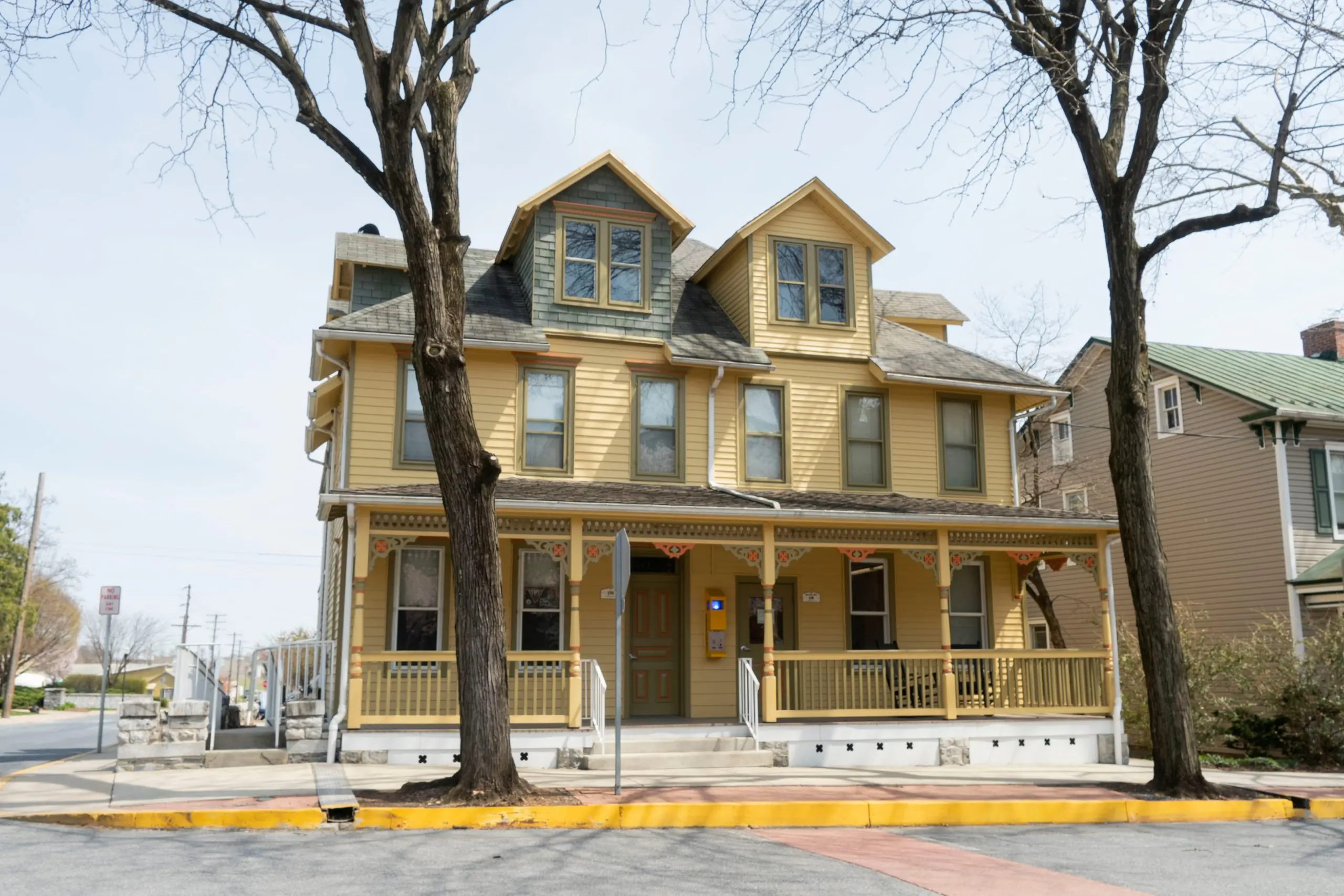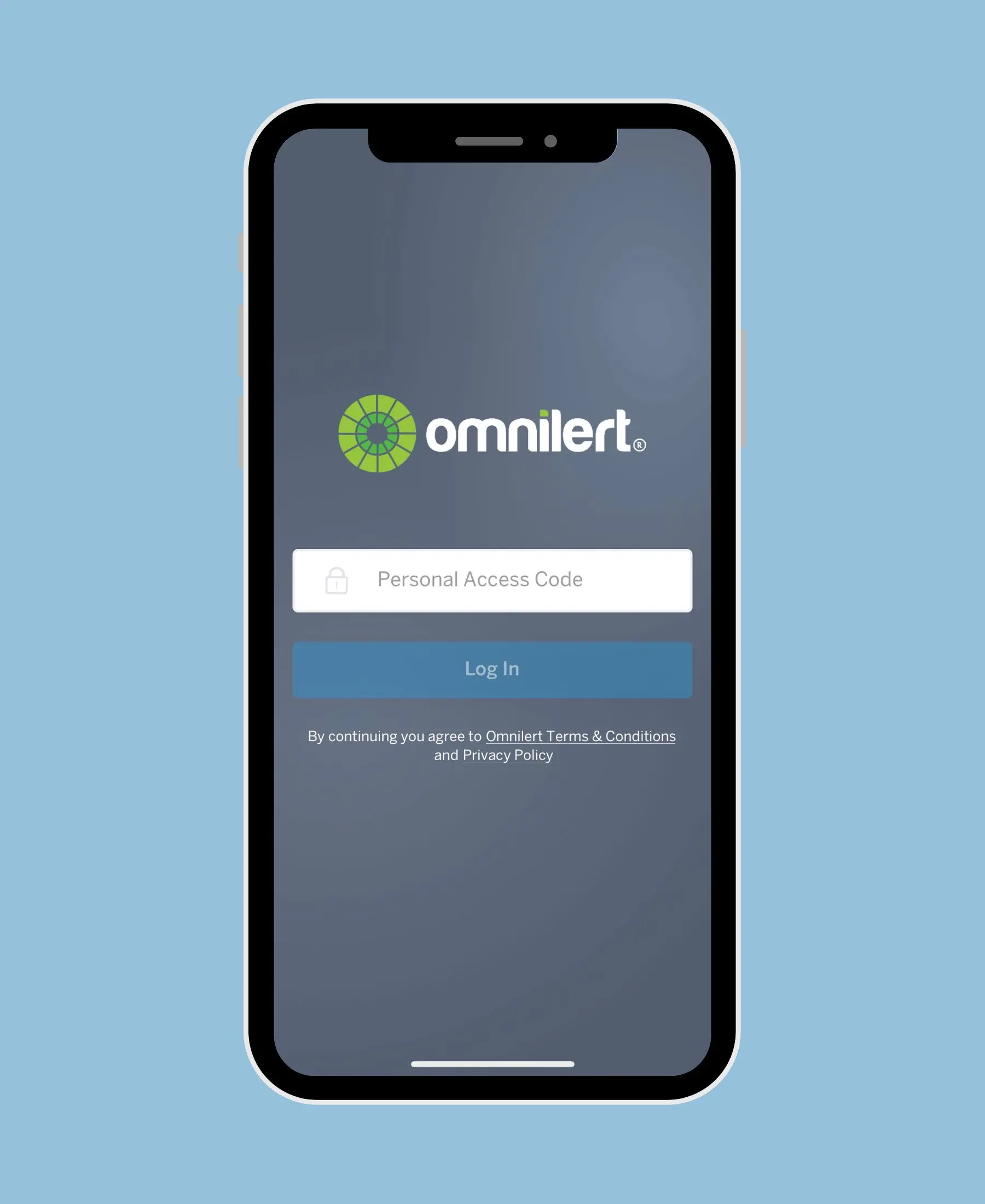
Campus Safety
An officer is available 24 hours per day, seven days per week. Visit the Campus Safety Office at 148 N. College Ave., or call 717-867-6111 or ext. 6111, or email public-safety@lvc.edu for assistance. Call 911 in an emergency.
The College complies with all federal, state, and township laws regulating the possession, use, and sale of alcoholic beverages, controlled substances, and weapons. Also prohibited are the possession, distribution, sale or use of narcotics, hallucinogens, and dangerous drugs, and the possession of paraphernalia related to the use of alcohol or illegal drugs.
The Lebanon Valley College Office of Campus Safety staff includes a director, seven full-time officers, and several part-time officers. None of the officers has arrest authority; however, several members have experience from law enforcement careers.
Officers have the authority to ask persons for identification and determine whether individuals have lawful business at Lebanon Valley College. LVC officers have the authority to issue parking tickets, which are billed to financial accounts of students, faculty, and staff.
Officers do not carry firearms but have radios capable of inter-connecting with the telephone system and Lebanon County Emergency Dispatch, Annville-Cleona Fire Division (ACFD), and Annville Township Police Department (ATPD).
College policy prohibits any member of the campus community, including campus safety personnel, from using or carrying firearms, explosives (including firecrackers), or other dangerous articles or substances on campus property.
The Office of Campus Safety cooperates with federal, state, county, and local police authorities. Staff meets on a routine basis with the ATPD and other emergency management agencies to discuss campus and community incidents and share information. If assistance is needed with a major campus incident, the ATPD and/or other law enforcement agencies are asked to assist. All crime statistics are reported as required by law.
Campus safety refers alleged violations of the Student Code of Conduct to the vice president of student affairs and dean of students or their designee for adjudication by the College.
The campus community is encouraged to report any crime or safety and security concern to the Office of Campus Safety, 148 North College Avenue, Annville, Pennsylvania 17003 717-867-6111 or ext. 6111.
All emergencies are immediately communicated to the college community through the appropriate college officers. Additional information is made available through resident assistants in the residence halls, email, the website, and social media.
Most campus buildings and facilities are accessible to the campus community and to escorted guests and visitors during normal business hours, Monday through Friday, and for limited designated hours on Saturdays and Sundays during the academic year (this excludes most holidays).
The First-year Student Parking Lot and Walkway, northeast area of campus are equipped with camera surveillance. Cameras are not monitored under normal operating conditions but may be monitored periodically for legitimate safety and security purposes. Additional camera surveillance includes Red Lots A & B parking and in the Lebegern Learning Commons.
Emergency telephone blue lights have been strategically placed on campus for your safety and convenience. Some of the telephones have blue lights mounted for easy identification. By pushing the red button, these phones will function as a normal campus extension. The telephone connects you with a campus safety officer or dispatcher. Even if you cannot speak into the phone, a campus safety officer will be dispatched to your location.
Use these phones for security assistance, medical assistance, fire alert, emergency information, and the reporting of crimes or suspicious persons.
Facilities Services personnel are available during normal business hours and are on-call 24 hours a day (after 4 p.m. call the Office of Campus Safety at Ext. 6111) to respond to emergency maintenance calls. They are responsible for inspections of campus facilities and for repairs. Campus Safety personnel assists the maintenance department by reporting potential problems such as broken doors, locks, and lights. Campus landscaping and outdoor lighting are regularly evaluated for safety and security.
Fire and safety procedures are explained and reviewed with students at the beginning of each academic year.
All campus buildings are locked and unlocked on a scheduled basis. Keys are issued only to those individuals authorized to enter a building. Residence hall windows are equipped with standard locking devices and all student rooms have approved locks.
On-campus housing includes single, double and triple rooms. The College does not control any housing spaces beyond the campus boundaries.
During the school year, there are approximately 48 resident assistants and professional residential life staff who administer the policies of the College and oversee the day-to-day operation of the residence halls.
The professional residential life staff works closely with student resident assistants. All resident assistants are required to participate in workshops that include housing, security and enforcement procedures. The resident assistants, in turn, inform students about these procedures. The Residential Life Guidelines, found in the Student Life Handbook and Academic Planner, emphasize the role of individual responsibility for living on the LVC campus. A copy of the Residential Life Policies may be obtained from the Office of Student Affairs.
During holidays and vacation periods entry door locks may be replaced and new keys issued. During regular sessions, campus safety personnel checks entry doors at regular intervals, including periods of no occupancy or low occupancy.
Residents are instructed to carry their keys and to keep the residence halls locked at all times. Locking your dorm room every time you leave your room (no matter how briefly) can prevent thefts from occurring.
Campus Safety officers do random foot patrols of residence halls on campus.
The Office of Campus Safety administers a lost and found program. Articles found on campus should be turned in to the office where they will be recorded and secured. Individuals who have lost an article should check with the office to see if the property has been recovered.
Make your Safety a Priority!
R.A.D. (Rape Aggression Defense) is a self-defense course being offered each fall by staff in the Office of Campus Safety for all women. The 11-hour course is designed to empower women, teach valuable defense skills, physical confrontation skills, and how to protect yourself. Participants are taught blocks and strikes, in addition to addressing risks to personal safety. The course is offered at no charge but will be limited to a maximum of 14 female participants.
Sign Up Via Redbook
Please contact campus safety with any questions or if you require assistance signing up for the course.
- Phone: 717-867-6111
- Email: public-safety@lvc.edu
R.A.D. Basic Physical Defense Class Breakdown
Session 1
Utilizing the R.A.D. student manual, students will be involved in a discussion of risk reduction strategies, date rape, continuum of survival, defensive strategies and the basic principles of defense. We also discuss the pros and cons of defensive weaponry, how to develop a defensive mindset, understanding offensive and defensive postures, recognizing vulnerable locations and utilizing personal weapons.
Session 2
Participating students will begin the process of hands on training. The techniques utilized by R.A.D. Systems are based on simple gross motor skills and are developed to the point that they become instinctual through repetition.
Session 3
Participating students will continue the process of hands on training. Students will have the opportunity to use these techniques in dynamic impact training by striking padded equipment held by the instructors. All techniques target a single attacker.
Session 4
Participating students will continue to refine the skills previously learned with “practice, practice and practice.” Students will then participate in “simulated assault” scenarios with R.A.D. instructors, who along with participants, wear state-of-the-art protective gear specifically designed for this training. Women have the opportunity to utilize their skills in a safe training environment.
The Pennsylvania Worker and Community Right to Know Act became fully implemented on August 2, 1988. This legislation is intended to ensure that employees receive information about chemical hazards in the workplace and that the health and safety of workers are protected by greater awareness of the hazards of exposure and the proper and safe handling procedures.
The Right to Know Act requires the employer to:
- provide notice to workers of their rights under the law
- provide regular training and information regarding hazardous substances
- maintain a list of hazardous substances found in the workplace
- maintain proper labeling on containers of hazardous substances, mixtures, and chemicals.
Students and employees may request information regarding hazardous materials to which they may be exposed. Material Safety Data Sheets (MSDS forms) are maintained in the Office of Campus Safety, Facilities Services, and Garber Science Center.
If you would like a campus safety officer to accompany you in walking anywhere on-campus, please contact the Campus Safety Office at x6111 or use the campus emergency blue light phones. To pre-schedule, please contact the Campus Safety Office.
Information regarding convicted and registered sex offenders may be obtained in the Campus Safety Office on campus, (campus phone extension 6111, off-campus 867-6111) or in the Annville Township Police Department (867-2711) or Pennsylvania State Police web site (psp.state.pa.us) or 1-866-771-3170.
Lebanon Valley College has an obligation to provide a safe environment and protect the college property. For the safety of all members of the College, the use of skateboards, roller skates, rollerblades and human-powered cycles (bicycles, unicycles, etc.) is prohibited within all buildings upon the campus. The use of these devices is permitted on walkways and paths as long as the right of way is granted to pedestrians. Riding such devices on walls, benches and the like is prohibited.
Due to safety concerns regarding fire safety and operator safety, hoverboards are not permitted anywhere on the Lebanon Valley College campus. The term “hoverboards” includes but is not limited to self-balancing scooters, battery or gas-operated scooters, hands-free Segways & electric powered skateboards. Service-related devices such as mobile scooters are permitted.



